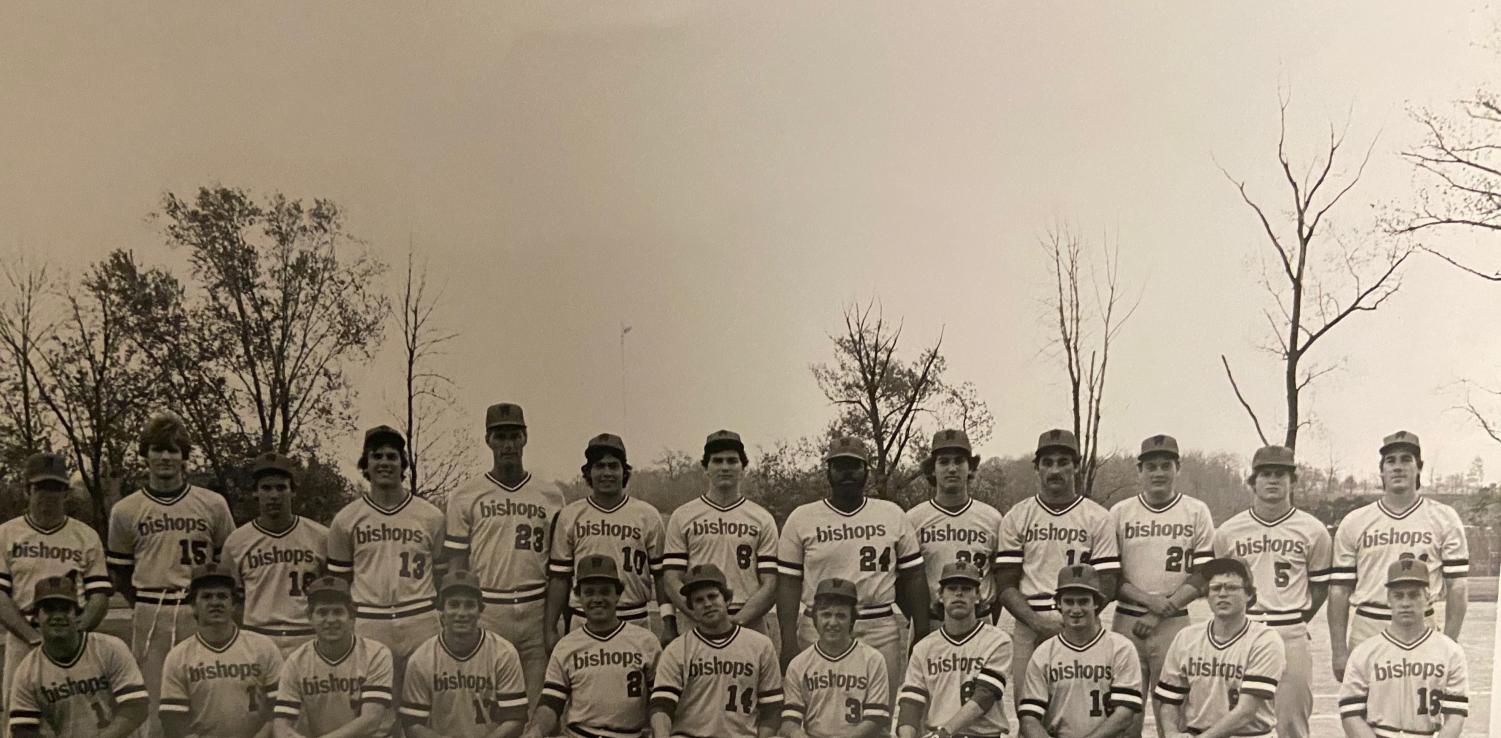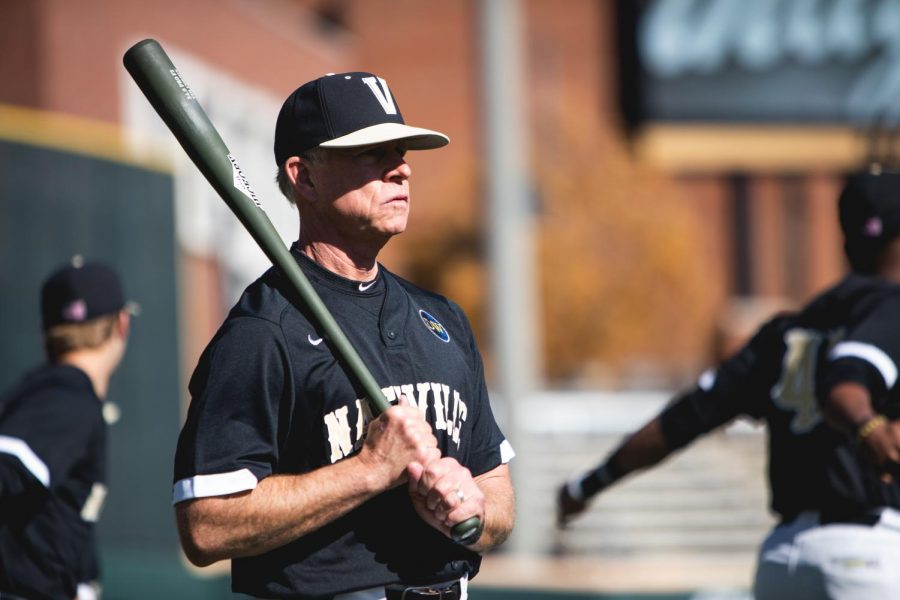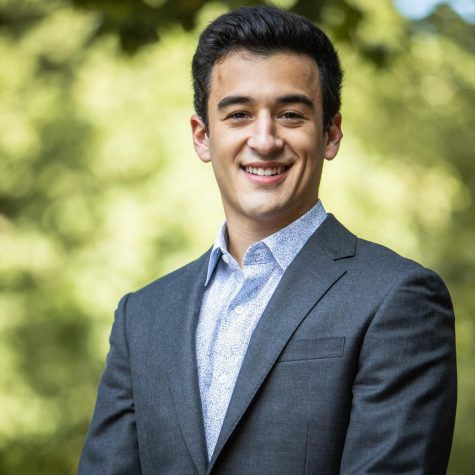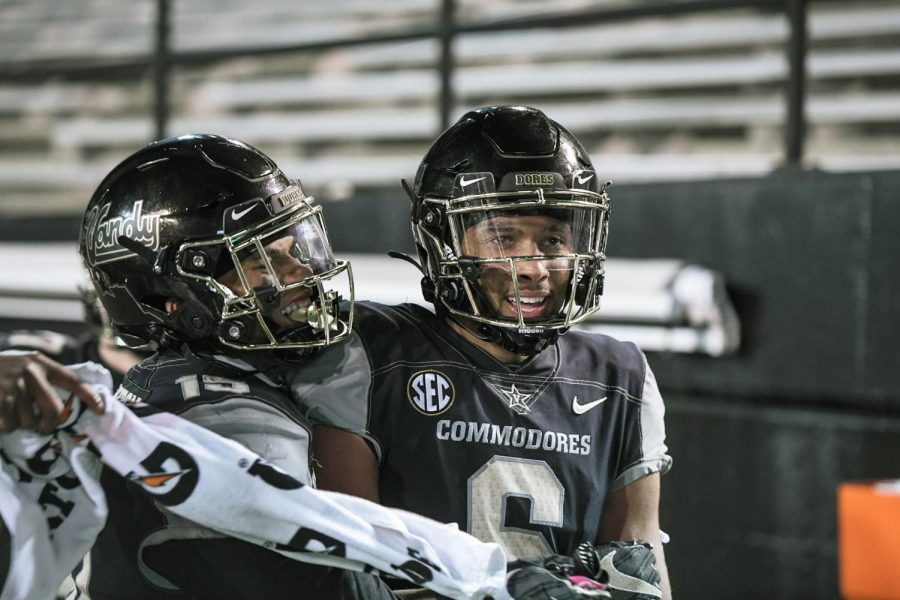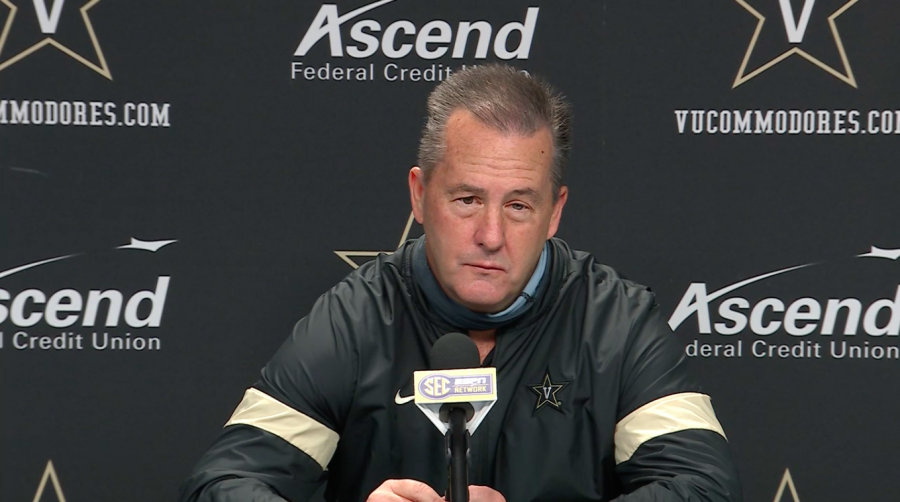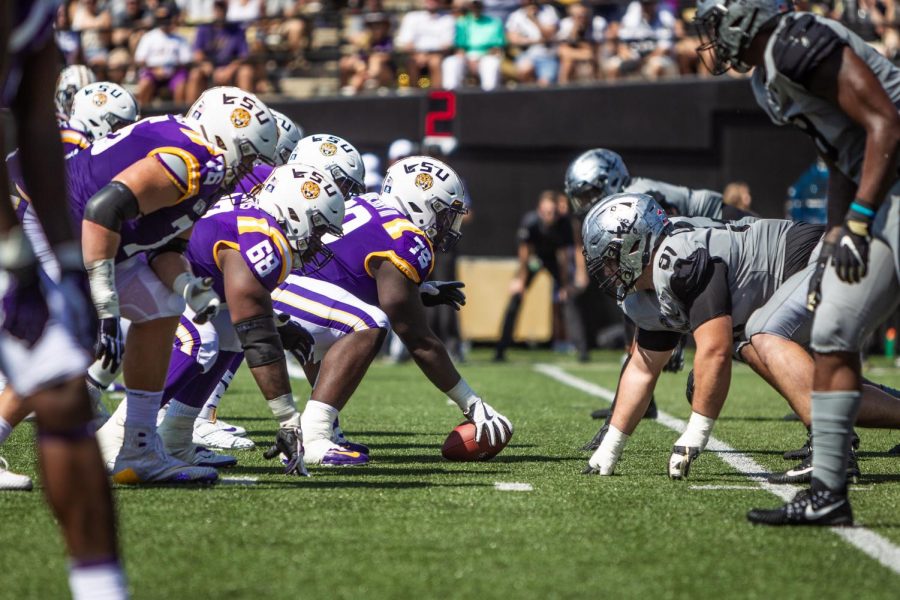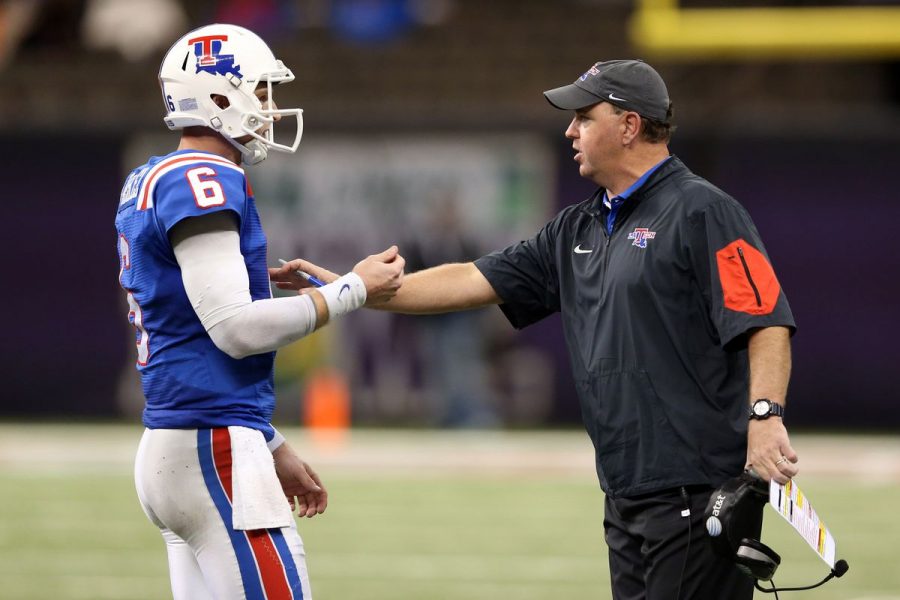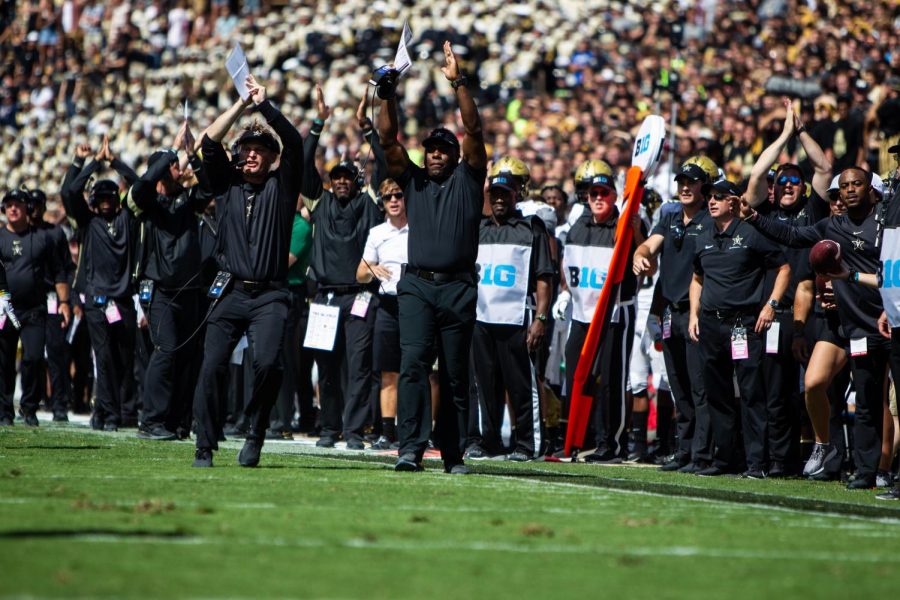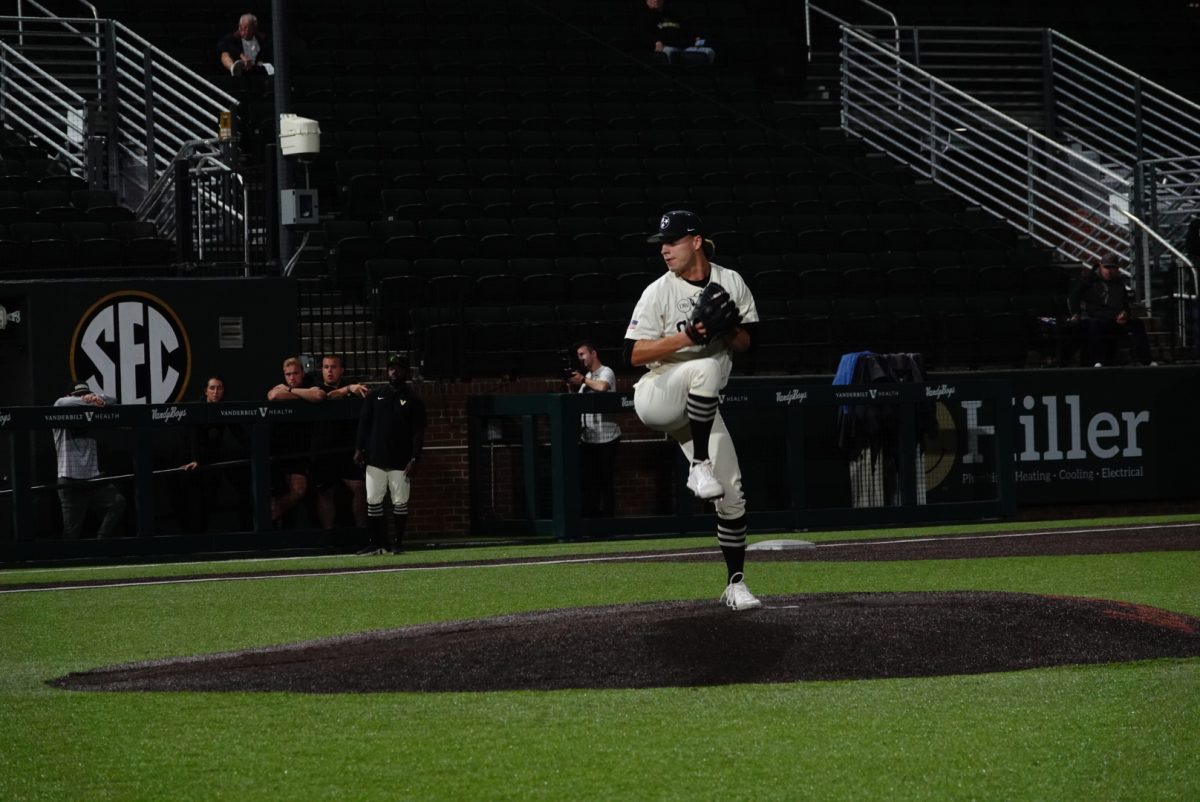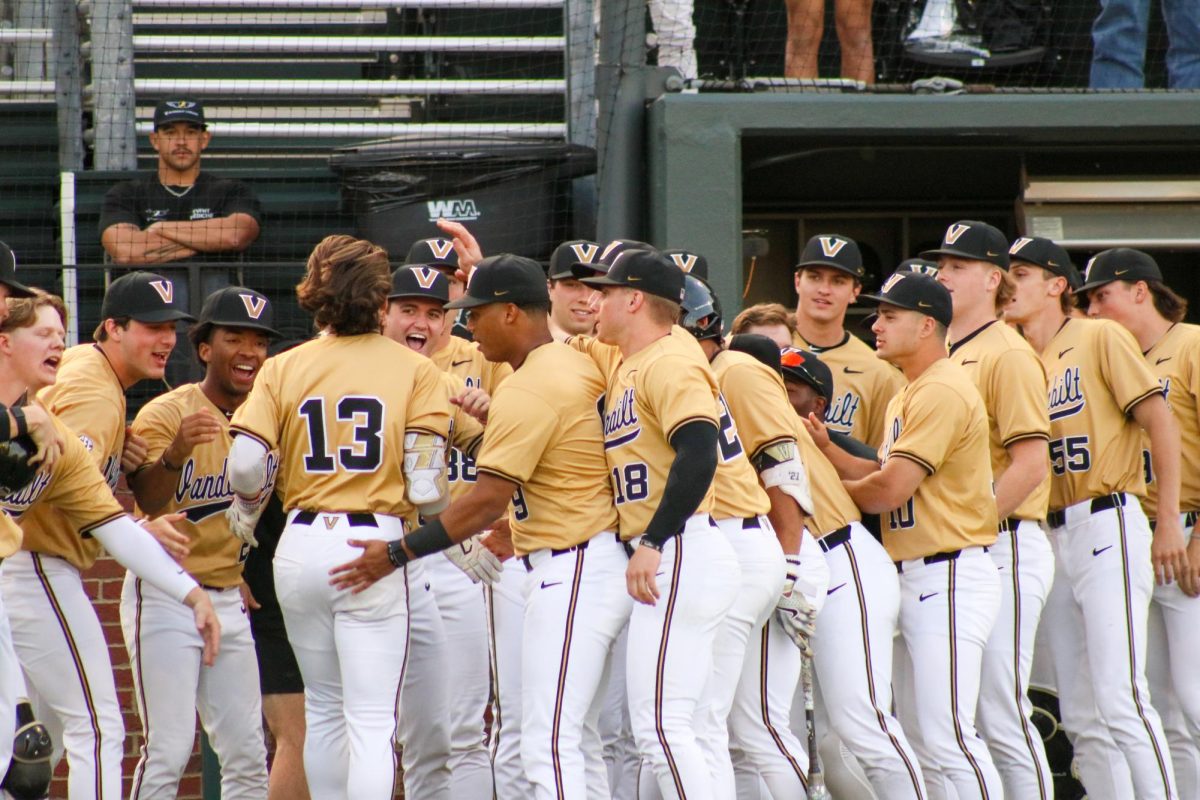Todd Fitch just needed some guidance.
It was December of 2019, and the 35-year college football veteran was stationed in Ruston, Louisiana as the offensive coordinator of the Louisiana Tech Bulldogs. The Bulldogs had just shut out Miami (Florida) in the Independence Bowl—their sixth straight bowl win—to put a bow on a 10-3 season. That season, Fitch’s offense produced 32.5 points per contest, evidently catching the eye of Vanderbilt head coach Derek Mason.
Mason, who had just parted ways with his offensive coordinator, had to rebuild a Commodore unit that averaged just 16.5 points per game in 2019. After the two connected, Mason offered Fitch the job.
“I knew about Vanderbilt, having coached in the SEC,” Fitch said, citing a brief stint at South Carolina from 1999-2002. “I knew what it was all about from the outside looking in, but I needed to know the inner workings of the university. I wanted to know where everything was at athletically.”
He had been in this position before. In the fall of 1982, Fitch—a freshman defensive back at Ohio Wesleyan University—sought out advice. He wanted to understand the university and how it functioned athletically. He wanted to find his place and fit in with the upperclassmen.
Fitch, the freshman, just needed some guidance.
Luckily, one student—the football team manager—was able to help bridge the divide. This student was a jack-of-all-trades. In the spring, he played on the baseball team. In the fall, he served as the football student-manager, helping with film, equipment, recruiting and more. His understanding of the university and its athletics programs was second-to-none. He was a junior, and his roommates were all football players. He checked all the boxes.
“It was just natural for the freshmen,” Fitch said. “You’d go meet him, spend some time around him, then it branched off. He’d help you understand the school and you’d get to know those older guys much better.”
So in December of 2019, when facing a familiar transition, Fitch called up his old friend. He was elated to hear the news.
“Oh, I mean, it was just so awesome. I was so fired up,” former student-manager Tim Corbin said. “I was fired up that it was a possibility that he was going to come here, and it was a great full-circle moment.”
According to Fitch, that conversation told him everything he needed to know. Corbin expressed exactly what makes Vanderbilt a special place—from Coach Mason and the football program, to the supporting cast in the athletics department and “the student-athletes, who are some of the brightest out there.”
The news was made official on Jan. 4: Vanderbilt baseball head coach Tim Corbin—formerly a baseball player and football manager at Ohio Wesleyan—had been reunited after almost forty years with Fitch, his longtime college friend, on West End.
When Fitch first arrived in his office, there was a letter waiting on his desk. The message, handwritten on VandyBoys letterhead, was from Corbin.
“That letter is personal. I’ll just keep that between him and I, but I just think anytime you can help a guy with confidence, you do it,” Corbin said. “From my vantage point, I’m going to want to watch him more than he’s going to want to watch me. That’s really all the letter was. I just tried to give him confidence about the decision he made.”
National Champions, Super Bowl Champions and Bowl Winners
Tucked away beneath the Olentangy River in Delaware, Ohio lies a small, liberal arts university. Ohio Wesleyan, a member of the NCAA Division III North Coast Athletic Conference, is hardly known for its athletics. That was no different in the 1980’s.
“I really can’t tell you that my playing career was spectacular,” Corbin said. “Because truthfully, it wasn’t. I was just a solid player on a not so great baseball team. Then our football team was decent. I mean, we really weren’t turning heads in either sport.”
Playing careers aside, there was something spectacular about those Ohio Wesleyan Battling Bishops teams. Just take a look at their footprint in 2020.
Corbin has created the gold standard of college baseball. Fitch has coached at UConn, South Carolina, Boston College and Louisiana Tech, to name three of his past eleven stops. Jeff Long, a former two-sport athlete and teammate of both Fitch and Corbin, has over three decades of experience in athletic administration. He’s now the Athletic Director at the University of Kansas, and previously held that role at Pittsburgh and Arkansas. Much like Long, Pete Germano played for the Battling Bishops on both the gridiron and the diamond. He’s now the defensive coordinator of the Ohio University Bobcats. Dean Hood was a member of that football team, and recently left his post at the University of Kentucky to take the reins as head football coach at Murray State. Bruce Tall also lettered in football; since then, he has produced multiple top-25 defenses as the defensive line coach of West Virginia.
Suffice to say, between Corbin, Fitch, Long, Germano, Hood and Tall, the group has done pretty well. Two National Championships in college baseball. Over 25 bowl wins in more than 35 appearances in college football.
And their coach? Kevin Colbert, the former head baseball coach and assistant football coach at Ohio Wesleyan, is now the Vice President and General Manager of the Pittsburgh Steelers.
You can add his Super Bowl XL ring to that group’s tally. And his Super Bowl XLII ring.
“That Ohio Wesleyan group was special,” Colbert said. “We had an array of young men that ended up getting into coaching and administration. It’s neat to watch their movement, of course. But this? Two guys at one school is not something I ever expected.”
Learning to Win
Fitch and Corbin entered Ohio Wesleyan under vastly different circumstances. Fitch was a highly-touted football recruit, slated to start as a true freshman. Corbin, on the other hand, snuck his way onto the baseball team.
“Tim’s baseball ability wasn’t what set him apart,” Colbert said. “It was the fact that he loved being around sports when he wasn’t playing. He wanted to learn. I just remember Tim always coming to the offices just always trying to learn. It really didn’t matter that we were only a Division III program. He still asked questions. ‘Why this guy? Why do you do it that way? What’s the purpose?’ He was always very inquisitive and wanted to learn how to go about the business of recruiting more so than just the x’s and o’s.”
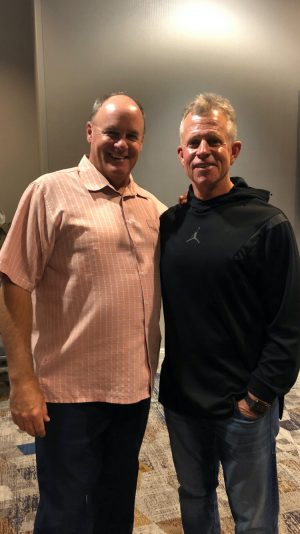
That drive to learn led to Corbin’s student-manager role, where he eventually met Fitch. Corbin’s offseason responsibilities included, but were not limited to: managing the football equipment; filing papers; breaking down and splicing film; organizing recruiting information and more—all without pay.
“It gave him a way to keep his nose in everything that happened in those athletic offices,” Colbert said. “I mean, he was doing a whole lot and wasn’t getting much, other than some experience, in return. You see that a lot among people that advance in the sports world.”
“I think what I was doing off the field for the football team ended up being very beneficial for what I’m doing today, from a baseball standpoint,” Corbin said.
While Corbin was managing, Fitch was playing.
“Fitchy was very serious about what he was doing,” Corbin recalled. “He was a defensive back and was a very good high school football player. I remember asking my roommate, who was also a football player, about Fitchy. He would tell me two things: first, he’s a very very good player. But secondly, he was very smart. Very on task. So for him to become a coach came as little surprise to me.”
Corbin used his time at Ohio Wesleyan to learn from Fitch and the football team. Now, Fitch hopes to learn from Corbin’s VandyBoys.
“I mean, the proof is in the pudding with how many guys get drafted,” Fitch said. “But what stands out to me, as a coach in another sport, is the culture of his program. I’m hoping to learn more. Right at the beginning of their season, when I first got in town, I stuck my head in their practice one day. They hadn’t even played a game yet, they were in workouts. I watched maybe ten minutes of the practice, then shot him a text and said ‘you know what? I can see why you’ve been successful.’ I watched the organization, the way the kids carry themselves, the way they walk, the way they present themselves in the drills. He’s got that all figured out.”
The two have continued to watch each other coach over the years. In the early 2000’s, when Corbin was at Clemson and Fitch was at South Carolina, they’d attend each other’s games and regularly exchange text messages—despite working for in-state rivals.
They wanted to learn from each other.
“I think the only thing that’s stronger than their desire to learn is their desire not to lose. They’re competitive and they both hate to lose. You know, our baseball team lost a lot. And almost every time, I remember Tim would go from being the jovial, keep-the-team-loose teammate to the guy that was visibly upset,” Colbert said through laughter. “And I mean really upset. Throwing bats across the room, throwing gloves, all those types of things when things didn’t go right. Fitch may not have been that dramatic about it, but the two hate to lose. I’m sure they’ll bring that desire to win to Vandy.”


